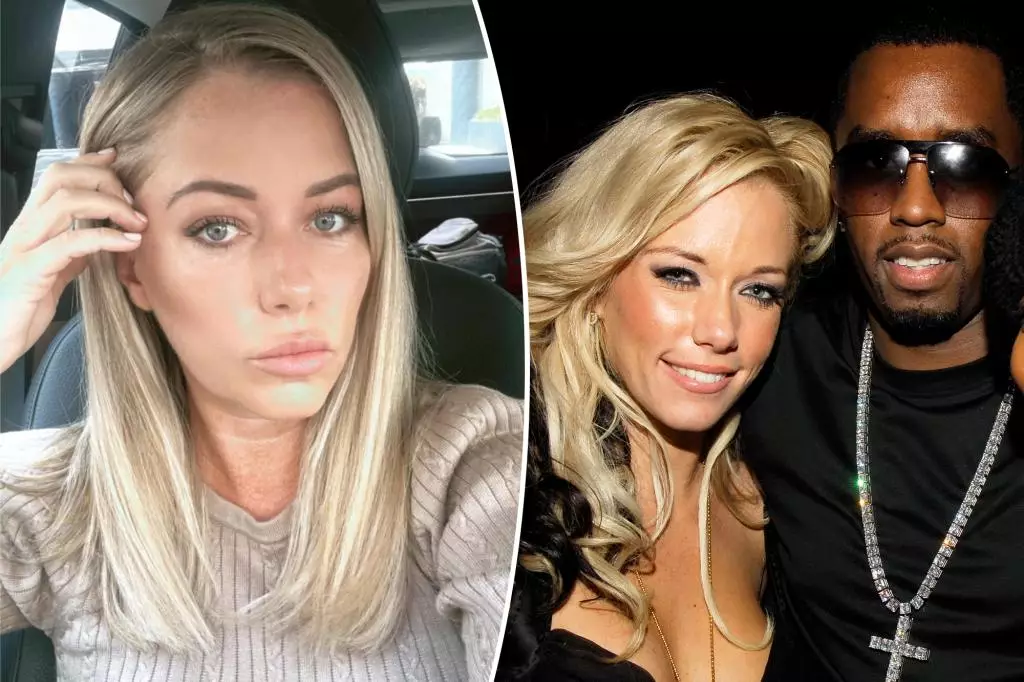Kendra Wilkinson, a familiar figure from the reality television scene, recently found herself at the center of a media whirlwind when she commented on the notorious parties of Sean “Diddy” Combs. Her remarks sparked intense scrutiny, especially after Combs’ arrest in connection with serious allegations including sex trafficking. While Wilkinson initially reminisced about the festive atmosphere of Diddy’s gatherings, she later clarified her statements, presenting a nuanced perspective that is often overlooked in celebrity narratives. This situation highlights the intricate relationship between celebrity culture, personal experience, and public perception.
On the “Kylie & Jackie O Show,” Wilkinson described memories of attending Diddy’s parties with enthusiasm. However, her comments soon turned problematic in light of Diddy’s recent legal troubles. Wilkinson attempted to clarify her remarks via Instagram, indicating that her references to Diddy’s parties were not meant to trivialize the gravity of the ongoing allegations against him. She acknowledged her limited interaction with Combs, saying, “I’ve only been to a few parties with [Combs] there back in the day.” This distinction illustrates the often blurred lines between personal anecdotes and broader societal issues, particularly when discussing figures linked to scandalous behaviors.
Reflections on Past Experiences
Wilkinson’s subsequent remarks revealed a deeper contemplation about her past experiences within the Hollywood party scene. She reflected on her time at the Playboy Mansion, where she witnessed brazen revelry but insisted that her experiences did not include anything alarming. “I never witnessed anything really bad happening around me,” she stated, although she acknowledged the potential for darker occurrences beyond her line of sight. This acknowledgment invokes a broader discussion about the culture of party scenes in Hollywood, where occurrences like substance use and inappropriate behavior often occur behind closed doors.
Moreover, her statement that “sex is sex in my opinion,” although controversial, resonates with a perspective that many in the entertainment industry share—one that both normalizes casual encounters and glosses over the serious concerns surrounding consent and exploitation. This sentiment reflects a disconnect between the glittering party lifestyle and the underlying issues often swept under the rug.
The allegations made against Diddy paint a very different picture than the nostalgia Wilkinson expressed. The indictments reveal a troubling narrative of exploitation and abuse, with claims that he established a criminal enterprise characterized by horrific infractions ranging from sex trafficking to racketeering. The reports of authorities discovering over 1,000 bottles of lubricant and baby oil during a raid on Diddy’s residences only amplify the severity of the situation.
This contrast between the buoyant memories of A-list gatherings and the grim realities of the legal accusations against Diddy elicits questions about complicity within celebrity circles. How often do individuals turn a blind eye to objectionable behavior in favor of maintaining a connection with influential figures? Wilkinson’s experience—while uplifting in recollection—also serves as a reminder of the need for accountability within such environments.
Wilkinson’s reflections demonstrate a crucial moment for self-examination, both for public figures and their audiences. Celebrity culture is a double-edged sword, offering invitations to glamorous lifestyles while simultaneously masking the darker implications that often accompany fame. When individuals share their past experiences, especially in light of scandal, it is essential to approach these narratives with sensitivity and an understanding of the broader societal context.
As Wilkinson grapples with her past and the current landscape surrounding Diddy, her statements resonate more profoundly than mere reflections of bygone parties. They reveal the critical need for ongoing discourse about consent, power dynamics, and personal accountability in an age where social narratives are rapidly evolving. This moment in time calls not only for reflection but also for action and advocacy for those whose voices have been silenced.
Wilkinson’s journey from party girl to a vocal figure reflecting on more complex themes encapsulates the intricate tapestry of celebrity life—where joy, regret, and responsibility intersect. The ongoing saga of Diddy serves as a poignant reminder that behind the glitz and glamour, grave realities exist, warranting both recognition and action in our cultural consciousness.

